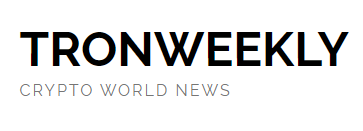January 22, 2025 by Bena Ilyas
- Due to evolving U.S. regulations, Brian Armstrong warns Coinbase may delist Tether’s USDT.
- Tether’s market cap stands at $138 billion, with concerns over compliance and audits.
- Tether faces ongoing investigations and may be impacted by new U.S. stablecoin bills.
Coinbase CEO Brian Armstrong has indicated that the company could delist Tether’s USDT if compelled by new U.S. legislation. Speaking at the World Economic Forum in Davos, Armstrong highlighted Coinbase’s regulatory compliance commitment, emphasizing the importance of maintaining a secure cryptocurrency trading environment under legal frameworks.
The stablecoin market, valued at $218.7 billion, could change significantly if U.S. lawmakers push for more stringent rules. Armstrong’s comments suggest that Coinbase’s preference for compliance could lead to shifts in the market, especially regarding USDT’s future role in the U.S.
COINBASE CEO: TETHER MIGHT GET KICKED OFF IF THEY DON’T FOLLOW NEW US RULES
Coinbase’s Brian Armstrong just dropped a bomb—if US stablecoin regs demand full Treasury backing, Tether’s gonna have to comply or get booted.
He said they’d delist USDt if it doesn’t make the cut.… pic.twitter.com/R1waWm73vA
Coinbase and MiCA Regulations Challenge Tether’s Position
According to Armstrong, new stablecoin regulations may mandate that issuers hold 100% of reserves in U.S. Treasury bonds and undergo regular audits. These changes could force Coinbase to remove Tether from its platform, as it must comply with the new rules, similar to the actions taken under the EU’s MiCA legislation.
With a market cap of $138 billion, Tether holds a dominant position in the stablecoin market, ahead of rivals like Circle’s USDC. The company publishes quarterly attestations to prove its reserves, primarily backed by U.S. Treasury bonds. However, critics argue that these attestations fall short of full audits, raising concerns.
The EU’s MiCA regulations have challenged Tether, prompting Coinbase to delist USDT in Europe. Armstrong’s remarks suggest that U.S. lawmakers may adopt similar regulations, requiring stablecoin issuers like Tether to meet more stringent financial reporting standards. Coinbase would follow these rules and delist USDT if necessary.
Despite these hurdles, Tether’s business is largely based in emerging markets outside the U.S. and Europe. Tether also holds reserves in commodities like Bitcoin and gold, making it more complicated to meet proposed regulatory requirements if they expand. Armstrong emphasized that Coinbase’s stance on regulatory compliance remains unchanged.
Tether Faces Ongoing U.S. Sanctions Investigations
Two proposed U.S. bills aim to regulate stablecoins, with one seeking to bar offshore and unregulated issuers like Tether. Although these bills have not progressed, Armstrong predicts future laws will demand stricter compliance. Coinbase is prepared to delist non-compliant stablecoins, mirroring actions taken in Europe.
Tether relocated its headquarters to El Salvador to address regulatory pressures, leveraging the nation’s crypto-friendly stance. The move followed Tether’s Digital Asset Service Provider (DASP) license acquisition. Despite these efforts, Tether remains under investigation by U.S. authorities for potential violations of sanctions and anti-money-laundering regulations.
Kraken’s introduction of USDT0 on its Layer 2 blockchain, Ink, signifies further innovation within the stablecoin ecosystem. The development want to enhance cross-chain asset swapping, integrating the Omnichain Fungible Token (OFT) standard for efficient exchanges. However, Tether’s compliance challenges persist despite its attempts to adapt.
Related Reading: Coinbase CEO Urges Bitcoin Adoption for Economic Freedom

 9 months ago
56
9 months ago
56




 English (US) ·
English (US) ·